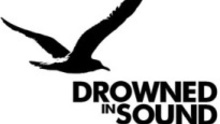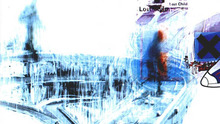There’s an in-built reaction to the phrase 'the bass player’s solo album,' and it’s not a good one. If we’re honest we don’t read that sentence as simply 'musician makes music,' coded beneath it is a judgey cliche - the rhythm player with ideas above his station. He’s not the primary songwriter, he doesn’t even sing back-up, how dare he 'do his own record,' the poor, deluded plum? It’s a ridiculous, unfair reaction but you suspect it’s one Nate Mendel, bassist in the Foo Fighters for 20 years, and now leader of his own project, Lieutenant US (for legal reasons, just plain 'Lieutenant' outside of the UK- probably revenge for The London Suede all those years ago) is expecting. Stepping out of the shadow of Dave Grohl, the people’s rockstar, can’t be an easy thing after all, but after talking to Mendel you really do want him to succeed: he’s a very likeable, understated man, and he’s made a very likeable, understated record and neither of them deserve to be written off. You root for him. We talked to man himself about the bassist's role, the ethics of hardcore, and what it takes to step to the front at last.
Your PR has told me I’m not supposed to ask about Foo Fighters so, first question. What's Dave Grohl REALLY like? Nate Mendel We can talk anything- football if you like?
It’s not really my thing. Okay, question two: What's Taylor Hawkins really like? NM Oh my god, I misspoke.
Sorry, a serious question: How did the record come together? NM I've been playing bass primarily for years and years, and one day just picked up a guitar and started playing around with it. I've never had designs on doing my own record before, I never even sing in the shower or the car, or anything, but I had a suspicion that I could take some of the melodic ideas I had with bass and turn that into a complete song. Instead of being disqualified by the league of songwriters because I'd never done it before, maybe all you needed was an idea for a melody and some passion for doing that, and you could translate that to other instruments and pile those onto one another in a song? It was an experiment to test that hypothesis: am I capable of doing this? Would I enjoy this? What do I feel about writing lyrics and putting myself out there like that, being that exposed? I wanted to have the challenge of that, really to see if I could pull it off.
There's so many disciplines involved in a solo project- singer, poet, bandleader- did you find that daunting? NM Naturally, it was scary but singing in the studio was the only part that was really unpleasant. You can't will yourself to do it, you have to manhandle the invisible force of a voice to do what you want it to do. That was incredibly frustrating. I got over the panic of that, the fear and the self-consciousness of it pretty early and just focused on trying to make it sound how I wanted it to sound. So there's elements of terror in there, here and there, but I got through them.
How did you want it to sound? Did you have the sound in your head? It's different to what you're known for, lighter and subtler than the Foo Fighters, and nowhere near your hardcore beginnings… NM There was no way it was going to be as bombastic as Sunny Day Real Estate, because I didn't have the players involved and that was really a one-off event, and the Foo Fighters is more polished than most of the music I'm inspired by personally, so I knew that it would be messier than that, and a little bit more odd. I wanted something that was quirky and original, I didn't know what that was until I got into it. It was hard for me to picture what it would sound like. Really I just started writing and followed whatever pathway seemed interesting at the time, and it turned out the way it did. I think now, because I do want to do more music in the future, I've got the responsibility to be a bit more diplomatic about what style I write in. I'd like there to be a style, rather than something quite so ad hoc.
There are some really nice touches on the record, I really like the horns in 'Sink Sand' for example, when you write, are those embellishments in your mind or is it a case of building and playing around with ideas? NM With that song in particular, that's one of the only songs on the album where I had an idea, and I really did want it to sound like something from Remain In Light as much as I could. I love that record, and the polyrhythmic quirkiness to it.
The bass playing is great on that song too. One of the moments where you can hear that you’re listening to a bass player’s album NM It's been tricky with my live bass player. I've had to apologise to him a couple of times.
I guess that echoes the early days of the Foo Fighters and [original drummer] William Goldsmith having to play Dave's drum parts as directed? NM Yes, absolutely. But drumming is much more competitive and sport-like than bass playing. Drums are their own island within a band.
I always think of bass as being the middle-man, balancing the beat and the the melodic elements. I think bass players tend to be the same- the moderating personality in a band… NM Yeah. Glue - that's a metaphor. It's a reasonable instrument, for sure. It doesn't attract extraverts and egotistical people because you're not going to get that kind of attention playing bass. You gravitate towards that and you end up filling that role within the band personally too. You've got two people arguing about how things should be, and you can feel the merits of both.
You came from the DC hardcore scene, which was a really community-focused scene with really strong ideals of openness and being very anti-rock star. I find people from a hardcore background tend to carry those ideals through their career. Do you find it hard to marry those elements with being in the world's biggest rock band? NM I think it's been, as you might expect, grounding. There's lots of different ways to – and this isn't to say I'm particularly successful at having a career in a band as large as Foo Fighters – but there's plenty of way to fail at it. As successfully as I have been able to navigate it, that comes from things I learned from the hardcore scene. Humility. It's about a link between audience and the band, about their not being a great barrier there. Just because you've written a song it doesn't mean you're qualitatively any better a person than the person in the audience. I like that, I think that that's good. The people that travel with us as our crew, we go out of our way to respect those folks and make sure everyone is having the best time, and the best working environment they can. I think those ethics all came from hardcore, as much as our band is the polar opposite of what was happening in Eighties DC. I think there's a few lessons that have lasted, because Dave comes from the same place, Pat [Smear] comes from the same place, Chris [Shiflett] to an extent too.
And now the 'reasonable man' with the hardcore ethics is moving from bass player to the band leader. Is that uncomfortable? NM I have to turn off the part of my brain that says 'this is too much attention, quit looking at me.' It's a very conscious effort that I have to go through, to be able to make those kind of calls, and ask certain things of people and, you know, for me because it doesn't come naturally, it's a mental game, to not apologise to the drummer or the bass player when I'm asking them to play a certain way. I have the right to ask for this music to sound a certain way, and being overly apologetic is just going to slow down the process and in the end, not be productive.
How have you found people have reacted? You're probably the member of the Foo Fighters people would least expect to put out a solo record… NM I don't know if it's surprise so much, though there weren't clear antecedents to this out there. People have been more supportive that I would have though, I've felt -again getting back to the thing about not being apologetic - there's definitely a part of me that worries no-one's going to pay any attention to it - a solo project from the bass player? But people have been pretty receptive, and not overly skeptical, which has been a nice surprise. I was going to make this no matter what, and if I'm not pleased with it I'll put it away and make another one, and if no-one seems to like it then maybe I'll just give it away on the internet, and if it gets a good response then maybe I could do an actual album release. I'll let the quality of whatever I recorded dictate what happened afterwards.
So what's the plan now… NM I do want to do another one. Now that I know that I like the process of doing it, I want to continue down that road. My goal is to have a functioning band that can go out and play shows, that I have some creative control over, whether I'm collaborating with other people or whether it's just me doing it on my own, I don’t want to be completely lashed to the cycles of the Foo Fighters. I like the idea of being able to say 'how about we go and tour South America and do it like THIS!' I want to have that freedom.
I guess one of the good things about being in a band as big as the Foo Fighters is that you're big enough to step out of the cycle, you don't have to make a record, tour, make another one, repeat… NM Yeah, and we've done that before. We're a pretty hard working band, but we took a couple of years off three or four years ago, and I imagine we'll do that again, and I hope there's an audience left on the other side of it, but we need to do it just for the sanity of the band anyways. I'd really like this work with Lieutenant to fill up that gap, so I'm not just mountain biking and changing diapers.
I've always liked Foo Fighters’ work ethic, does that come from the Sunny Day Real Estate days, from the hardcore days? You're a band, you play music, it's what you do… NM Taylor Hawkins, in our band, was the first one to really state that. Years and years ago he started a cover band, and he still does it, he played a show last night on an off-night from the tour, he said 'if we're not playing, I'm going to get together with my friends and jam and play shows and keep my skill up and play, because that's what I do. I'm a musician.' That hadn't necessarily occurred to me until that point. I thought, I'm in a band and if my band's not working then I'm really not doing music. Taylor was the first one who articulated a different way of looking at it.























